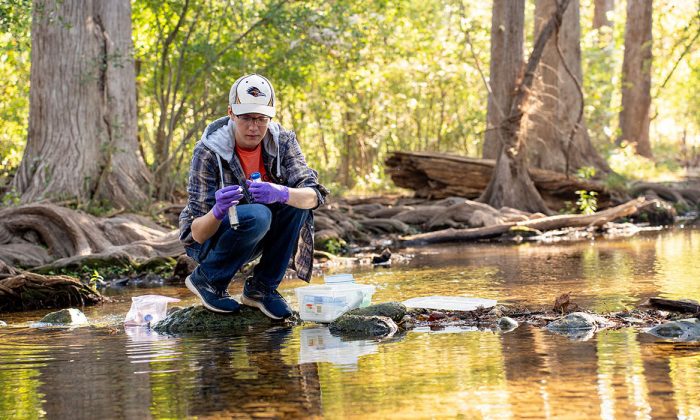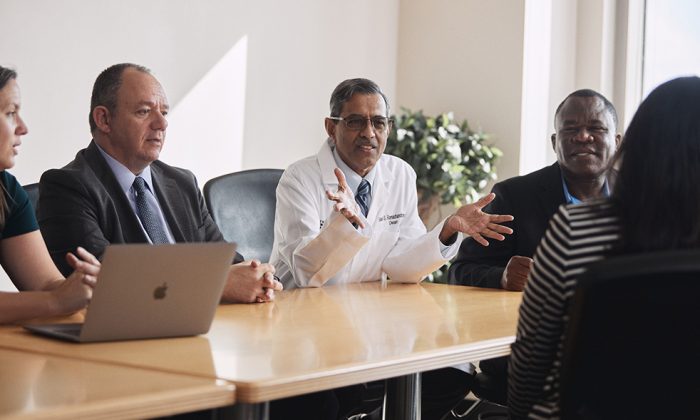SEPTEMBER 11, 2024 — The number of aging Americans is projected to more than quadruple over the next three decades, from an estimated 101,000 in 2024 to more than 400,000 by 2058, according to projections from the U.S. Census Bureau.
The population of older Americans — ages 65 and up — rose by more than 9% from 2020 to 2023 alone. The projections show continued trends in an aging society, with older adults expected to outnumber children for the first time in the U.S. by 2034.
To meet the needs of this unique and growing population, the UTSA Department of Sociology and Demography created a bachelor’s degree program and minor in Health, Aging and Society.
“We built the program to introduce students to the sociological study of aging, health and health care,” said Terrence Hill, program director and professor of sociology. “This is the most innovative health program at UTSA. We offer the perfect balance of academic and applied training.”
“This dynamic program paves the way for students to help address the nation’s challenges in aging, health care and health inequities.”
The program features courses on the interdiv of social inequalities and population health, aging as a social process, our failing health care system, and careers in the health and social service professions.
Since its introduction in 2022, the program has more than tripled in size, reflecting the number of students wishing to take advantage of this unique program.
“The Health, Aging and Society program’s interdisciplinary approach allows students to fully investigate how social factors influence health and illness in society,” said Ginny Garcia-Alexander, associate professor of sociology. “In addition to training on the social and cultural dimensions of health and aging, students are trained in health administration and research methods. This dynamic program paves the way for students to help address the nation’s challenges in aging, health care and health inequities.”
The World Health Association outlines five social determinants of health (SDOH), which become even more critical as we age: economic stability, social and community context, education access and quality, health care access and quality, and neighborhood and built environment.
An aging population means a higher use of health care services, a greater need for professional caregivers and puts more of a focus on taking the whole-lifespan approach to healthy aging, using the SDOH as a guideline.
“While the aging population presents challenges to the economy, infrastructure, and institutions, it also opens up significant job opportunities,” said Zhiyong Lin, assistant professor in UTSA’s sociology and demography department. “Pursuing a major in health, aging and society provides students with the knowledge and expertise to tackle these challenges. It is an ideal time to enter this dynamic and rewarding program to be at the forefront of meeting the needs of our aging society.”
To address these challenges, the degree program is divided into four core areas of study:
- Sociological perspectives on aging, health, and health care;
- Health profession, administration, and management;
- Social research methods and data analytics; and
- Interdisciplinary and interprofessional perspectives on aging, health, and health care that complement and challenge sociological perspectives
“Health, Aging and Society students gain exposure to major theories, methods, and substantive findings pertaining to social inequalities in health, disease, and disability,” said Christopher Ellison, professor of sociology. “In this way, the program trains students for positions in the health and social service occupations that are growing rapidly in Texas and across the country.”



